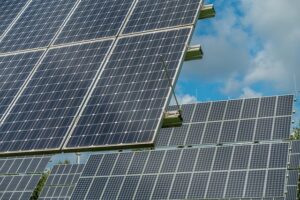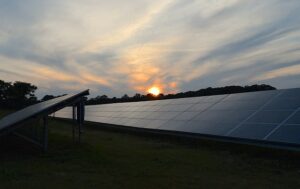
The Hidden Benefits of Solar Panels You Didn’t Know About
As the world becomes increasingly aware of the environmental challenges posed by fossil fuels, renewable energy sources like solar power have gained significant traction. While it’s common knowledge that solar panels can reduce electricity bills and lower carbon footprints, there are numerous hidden benefits of solar panels that often go unnoticed. This article explores the lesser-known advantages of adopting solar energy solutions, showcasing how going solar can positively impact your life in ways you may not have considered.
Enhanced Energy Independence
Solar panels offer a pathway to greater energy independence. By investing in your own solar energy system, you can produce a significant portion of your electricity, which decreases reliance on external energy suppliers. This shift not only allows you to secure your energy production, regardless of market fluctuations or utility price hikes, but it also enhances your resilience against power outages. In areas prone to blackouts or unreliable energy sources, a solar system combined with energy storage solutions, like batteries, can ensure a continuous power supply.
Increased Property Value
One of the most impactful yet undervalued benefits of solar panels is their ability to increase property value. Studies have demonstrated that homes equipped with solar energy systems tend to sell at higher prices and more quickly than those without. Potential buyers are increasingly looking for energy-efficient homes, and having a solar system installed is a significant selling point. The long-term electricity savings, combined with the increased home value, ensure that your initial investment in solar panels pays off beneficially during resale.
Job Creation and Economic Growth
The shift towards renewable energy, particularly solar power, stimulates job creation and promotes economic growth. The solar industry has experienced substantial growth over the past decade, leading to the creation of numerous jobs in various sectors such as manufacturing, installation, and maintenance of solar systems. By choosing solar energy, you are indirectly supporting local economies and contributing to job stability in your community. Every solar panel installed represents an investment into the workforce and development of skills necessary for a transitioning economy.
Incentives and Rebates
Many homeowners are unaware of the myriad of incentives and rebates available for solar panel installation. Various federal, state, and local governments provide financial assistance to encourage the adoption of clean energy technologies. Tax credits, grants, and rebates can significantly offset the initial cost of solar panel installations, making them more accessible for homeowners. These incentives not only reduce the immediate financial burden but also enhance the overall return on investment from the solar system.
Low Maintenance Costs
Another hidden advantage of solar panels is their low maintenance requirement. Once installed, solar energy systems require minimal upkeep. Most panels are designed to withstand harsh weather conditions and have warranties that last 25 years or more. Regular maintenance typically involves simple cleaning to remove dust or debris, ensuring optimal performance. This simplicity translates to long-term savings, allowing you to enjoy the benefits of solar energy without the worry of high maintenance expenses.
Curbing Climate Change
While the environmental benefits of solar energy are often touted, the profound impact on climate change is sometimes overshadowed by financial concerns. Solar power significantly reduces greenhouse gas emissions, helping to combat climate change and improve air quality. By choosing solar energy, you are making a deliberate choice to support sustainable practices that limit dependence on fossil fuels, ultimately contributing to a healthier planet for future generations.
Innovations in Solar Technology
The solar industry is continually evolving, bringing new, innovative technologies to the market. Emerging solutions such as solar shingles, bifacial solar panels, and integrated solar energy systems are making solar energy more efficient and aesthetically appealing. These advancements allow homeowners to harness solar energy in ways that fit seamlessly with their architectural designs, making solar power an even more attractive option. The ongoing research and development in solar technologies promise even greater efficiencies and options in the future.
Community Resilience
Solar energy plays a crucial role in enhancing community resilience by fostering local energy systems. By investing in community solar projects, neighborhoods can collectively benefit from renewable energy sources, even if they cannot install individual solar panels. These projects often empower communities to take direct action in energy generation, promote shared ownership of energy production, and create strong social ties. Furthermore, local solar initiatives can increase community preparedness for natural disasters by ensuring access to renewable energy sources during outages.
Net Metering Advantages
Net metering policies allow homeowners with solar panels to receive credit for the excess electricity they produce and feed back into the grid. This mechanism can lead to significantly reduced electricity bills. Many individuals are unaware of how beneficial net metering can be for offsetting energy costs during periods of low solar production, such as at night or on cloudy days. By maximizing the benefits of the grid, homeowners not only enhance their energy savings but also contribute to a more sustainable energy infrastructure.
Improved Health Benefits
The transition to solar energy can yield significant health benefits for individuals and communities. Solar power reduces air pollution associated with traditional fossil fuel energy generation, resulting in fewer respiratory diseases and overall improved public health. By decreasing reliance on coal and natural gas, solar energy contributes to cleaner air and fewer health care costs related to pollution-induced ailments. Investing in solar panels not only benefits you but also safeguards the health of your family and community.
The Psychological Benefits
The act of going solar can have profound psychological benefits as well. Knowing that you are doing your part to protect the environment and reduce reliance on non-renewable resources can instill a sense of accomplishment and purpose. This commitment to sustainability can foster a positive mindset, encouraging homeowners to adopt other eco-friendly practices. The feel-good factor that accompanies renewable energy can inspire individuals to become advocates for sustainable living.
Conclusion
While the common benefits of solar panels such as energy savings and environmental impact are widely known, the hidden advantages reveal the true value of solar energy adoption. From enhanced property value and job creation to health improvements and community resilience, the benefits extend far beyond individual economic savings. Embracing solar power is not merely an investment in energy; it’s a pledge to foster a sustainable and prosperous future for ourselves and the planet. With continuing advancements in technology and increasing awareness of the urgent need for renewable energy solutions, there has never been a better time to consider making the switch to solar.



